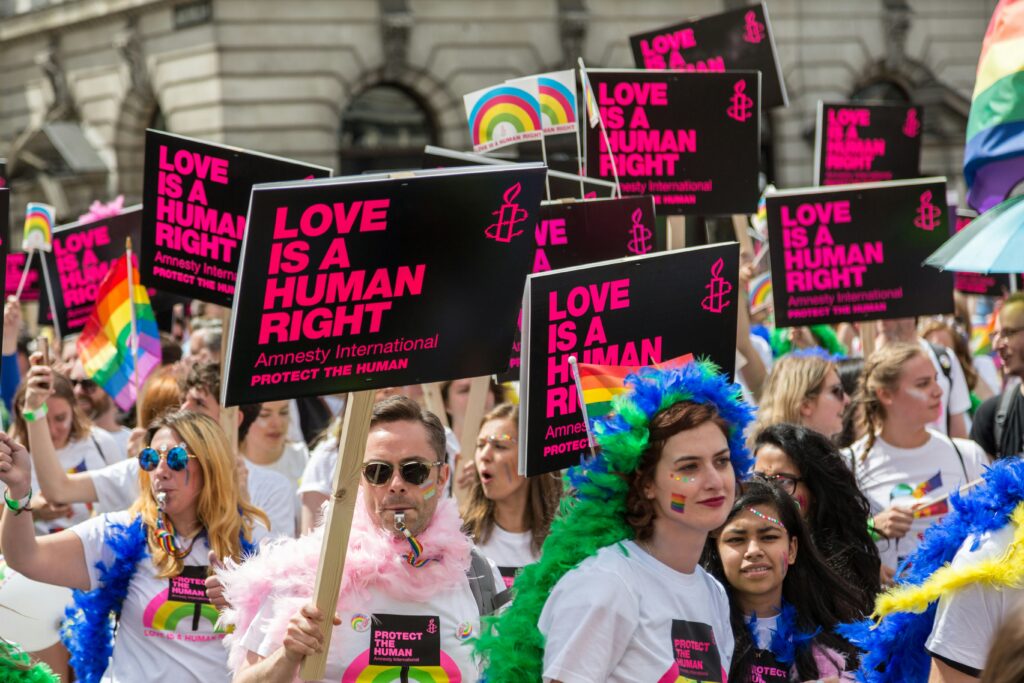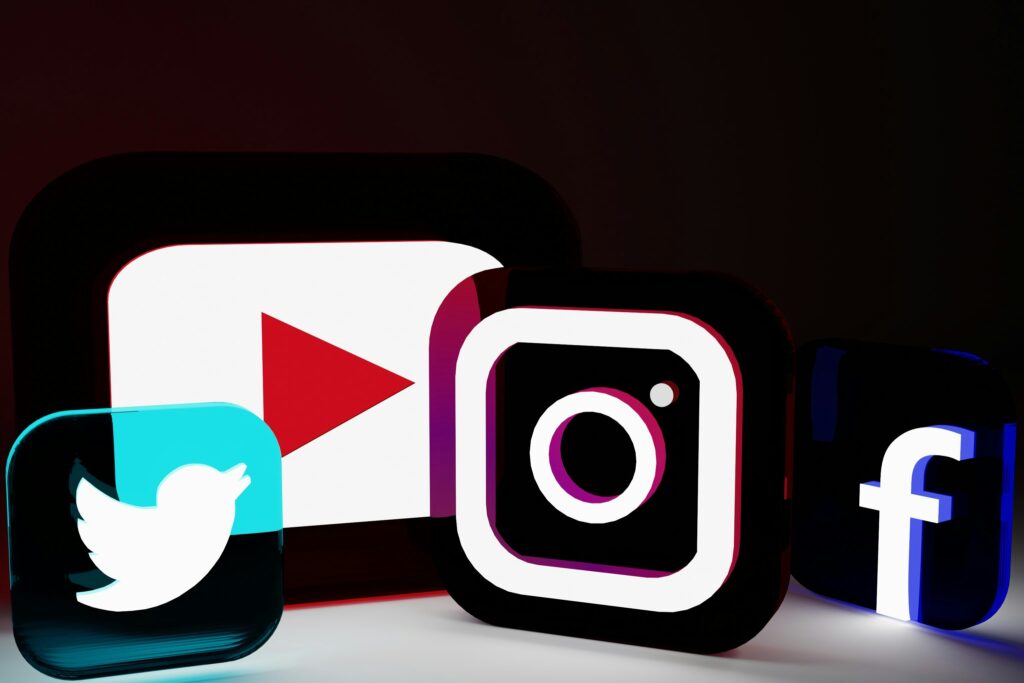Introduction

Photo by Ian Taylor on Unsplash
We live in an era where technology is pervasive in our lives. It is crucial to recognize how technology affects LGBTQ communities. From finding online communities to combatting hate speech against queer people, technology plays a significant role in the lives of LGBTQ+ individuals. However, it also presents challenges, including bias and discrimination. In this blog post, we’ll explore how technology affects LGBTQ communities.
The Intersection of Technology and LGBTQ+ Identity

Technology has revolutionized how LGBTQ+ people explore and express their identities. During the pandemic, plenty of people have discovered their sexuality through social media. Social media platforms provide safe spaces for connection, allowing people to find support and solidarity regardless of their physical location.
While these platforms empower individuals to share their stories and find community, they can also serve as breeding grounds for hate speech and cyberbullying. Online anonymity enables targeting LGBTQ+ individuals, increasing vulnerability.
Social media has revolutionized how LGBTQ+ individuals explore their identities, especially during the pandemic. While these platforms offer safe spaces to connect with like-minded peers, they also contain hate speech and cyberbullying. Taking proactive steps such as promoting digital literacy is crucial for creating safer, more inclusive online spaces. Through collective efforts, we can enable LGBTQ+ individuals to openly express themselves online.
Challenges Faced by LGBTQ+ Individuals in the Tech Industry

Despite making strides in LGBTQ+ rights, bias and discrimination persist within the tech industry. LGBTQ+ employees are more likely to be discriminated in the workplace. According to a 2017 TechLeavers study, LGBTQ+ tech employees are more likely to experience bullying (20%) and public humiliation (24%) compared to their non-LGBTQ+ coworkers at 13% and 13%, respectfully (Norton 2021). Furthermore, LGBTQ+ workers are hesitant in disclosing their LGBTQ+ status in fear of being bullied or fired. Additionally, self-reporting one’s LGBTQ+ status can be difficult since some LGBTQ+ tech workers “fear potential backlash or bullying” (Norton 2021).
Considering these alarming statistics, it’s evident that there is still a lot of work to be done to create a safe and inclusive environment for LGBTQ+ individuals in tech. It’s important for companies to prioritize diversity, equity, and inclusion initiatives, and for society to continue advocating for change. Furthermore, LGBTQ+ workers in tech can join organizations including Out in Tech and QueerTech to build professional connections. Through our collective efforts, we can ensure that everyone, regardless of their sexual orientation and gender identity, are treated with respect in the workplace.
Understanding Bias in Tech: Impact on LGBTQ+ Rights and AI Gaydar
Furthermore, discrimination and bias against LGBTQ+ people extend to developing and deploying technologies like AI gaydar. AI gaydar claims to identify a person’s sexual orientation based on their facial features. While this technology may seem harmless on the surface, its implications are deeply troubling. By perpetuating stereotypes and invading people’s privacy, AI gaydar reinforces harmful biases and poses significant ethical concerns. LGBTQ+ individuals already face disproportionate levels of discrimination and harassment, as highlighted in the previous paragraph. AI gaydar only makes these problems worse, pushing LGBTQ+ communities further to the sidelines and highlighting the immediate need for fair and responsible oversight in tech development.
Tech as a Tool for LGBTQ+ Empowerment
Despite these challenges, technology also serves as a powerful tool for LGBTQ+ empowerment. In February 2021, Kyle Royce started a viral TikTok trend by declaring that he is super straight, meaning that he only dates women who were born as women. This trend carried over to Reddit with the super straight subreddit gaining more than 30,000 members within a few days (i.e., On Reddit, online communities are referred to as subreddits). Hundreds of people have spoken out against this trend, including prominent YouTubers like The Queer Kiwi, Jammidodger, and D’Angelo Wallace. Shortly after the inception of the super straight sexuality, TikTok took measures to remove these posts by permanently banning the original creator, Royce, from TikTok and blocking the #SuperStraight hashtag. Also, Reddit banned the super straight subreddit within a matter of days for discriminating against a marginalized community.
While the super straight trend demonstrates the ongoing presence of discrimination in digital spaces, the swift response from social media platforms showcases the power of collective action in standing up against intolerance. By continuing to speak out against harmful trends and advocating for LGBTQ+ people online, we can use technology to foster inclusivity and acceptance for everyone.
Conclusion
Therefore, technology has the power to both empower and marginalize LGBTQ+ individuals. By addressing how technology affects LGBTQ communities, we can work towards a more inclusive tech industry that values and respects the diversity of all its members. Let’s continue to advocate for equality at work and create a digital landscape where everyone can thrive, regardless of their sexual orientation or gender identity.
If you want to read about mental health portrayals in media, read this blog post here.